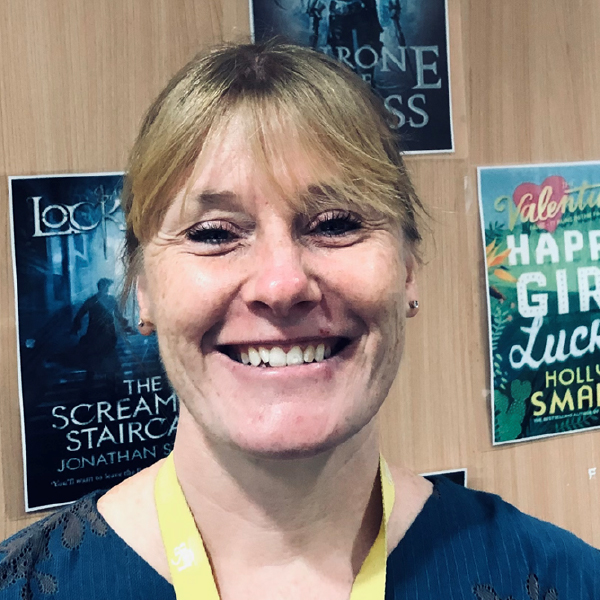International School Brunei (ISB) is a co-ed all-through independent school in the capital Bandar Seri Begawan, catering to approximately 550 secondary students. It also has a primary school, split across two campuses, one of which on the same site as the secondary school. It’s non-selective and prides itself on its inclusive nature and its success in educating a broad spectrum of abilities.
This very diversity, however, means its teachers depend on accurate assessments to identify student capabilities and needs. “We have 45 nationalities, half of our students are native English speakers, half EAL, with a wide range of abilities,” explains Tom Horton, Assistant Head (Student Achievement).
When it comes to reading and literacy, the most common problems with such a diverse student body are vocabulary, syntax and a lack of contextual information, says Sarah Oakley, Educational Research and Innovation Lead. It’s not just the EAL students who may have problems; native English speakers from widely different parts of the world can also be stumped. “Teaching Ted Hughes’ poetry to children who have been brought up on the equator can be quite a challenge,” says Sarah. “They have no experience of ‘moors’ or ‘frost’, for instance.”
“Lack of contextual information can be a real problem,” agrees Tom, who teaches economics at ISB. “Students in Brunei, one of the richest countries in the world, can’t easily grasp what widespread poverty or a township look like.”
 Tom Horton, Assistant Head (Student Achievement), International School Brunei
Tom Horton, Assistant Head (Student Achievement), International School Brunei
 Sarah Oakley, Educational Research and Innovation Lead, International School Brunei
Sarah Oakley, Educational Research and Innovation Lead, International School Brunei
It’s the bottom of the average band who are the ones at risk of slipping back. The obvious struggling readers, the weakest readers, are easier to spot and address.
Lack of a reading culture
The students at ISB are generally keen to improve their reading skills, but the lack of effective modelling at home can be a problem. “Partly it’s because there isn’t always a native English-speaker at home, but it’s also partly because there is much more of focus on maths in Asia than on reading,” says Tom.
Teachers at ISB do understand the link between reading and ability to access the curriculum, says Sarah, but that link isn’t always understood by parents and students. “When I asked my students in a recent survey if they agreed that they would find other subjects easier if they were good readers – 23% disagreed. When I put that question to students in the UK, a far lower proportion disagreed.”
Sarah says it’s not the weakest readers who are hardest to identify but the next group up – those who may be struggling but aren’t always obvious: “It’s the bottom of the average band who are the ones at risk of slipping back. The obvious struggling readers, the weakest readers, are easier to spot and address.”
To address these issues, the school has overhauled its English curriculum to focus on reading. “We have two lessons that are text-based focusing on comprehension and one that is focused on writing skills,” says Sarah. “We use reading retrieval and other strategies to ensure there is a focus on reading skills – paired reading, shared reading and reading aloud. And we also run fluency lessons for those students who need it.
“Reading aloud is a great way of improving student resilience,” says Sarah. “There’s no opting out. But it’s also the case that our classroom culture ensures students are very supportive of one another. There is no sniggering, for instance, if someone makes a mistake.”
Working the data
The school started using New Group Reading Test (NGRT) four years ago as part of a literacy drive. “It’s great at picking up any anomalies – if a student has a markedly different profile in sentence completion and passage comprehension,” says Tom. “And we triangulate the data with CAT4 scores. It’s not uncommon, for instance, for an EAL student to have a higher CAT4 verbal score than an NGRT score. It’s really important, particularly where EAL students are concerned, to understand that a low SAS doesn’t mean that a student can’t achieve.”
The data is used not only to give a sense of group and cohort ability levels but also to fashion interventions for individuals. “One of our most successful initiatives is mentored reading – using Year 10, 11 or 12 students to mentor younger students.”
Tom explains that he does the initial data assessment, paying particular attention to outliers when comparing their sentence completion with passage comprehension, or CAT4 verbal scores with NGRT scores. The results are shared with heads of department and class teachers are given a precis, so they’re not overloaded with data, though they can access more detailed reports if they wish.
ISB is about to start training teachers across all subjects about the importance of how much subject-specific reading needs to be undertaken. The teachers, Tom and Sarah say, are completely onboard – but they admit that inculcating a love of reading among students who are as easily distracted by social media as their peers elsewhere in the world, can be an uphill battle.
“Sometimes I really have to drag them with me,” says Tom. “Just the other day I set some reading homework for 17-year-olds, barely five pages long. And there was an audible groan. It was very notable – because we just don’t get groans from our students at all.”
It’s really important, particularly where EAL students are concerned, to understand that a low SAS doesn’t mean that a student can’t achieve.
Top five tips
What advice would Sarah and Tom give to other international schools embarking on a reading strategy?
- Do explicitly teach key vocabulary at the beginning of every lesson in all subjects – and revisit it
- Do ensure everyone reads aloud and that no student can opt out
- Don’t make assumptions about what you think the data will tell you and don’t neglect to thoroughly interrogate it
- Don’t assume a student with a low score can’t achieve – in international schools in particular it could be an EAL issue
- Don’t overload teachers with too much data – focus on the key bits of information that will help them in the classroom.
Talk to our specialists
If you would like to speak to one of our specialists about how we can support your students’ reading, add your details to our form and we’ll get in touch.
Find out more about the New Group Reading Test
Developing strong reading skills is essential for accessing the whole curriculum. With reading being a complex skill to master and measure, find out how NGRT can help.
